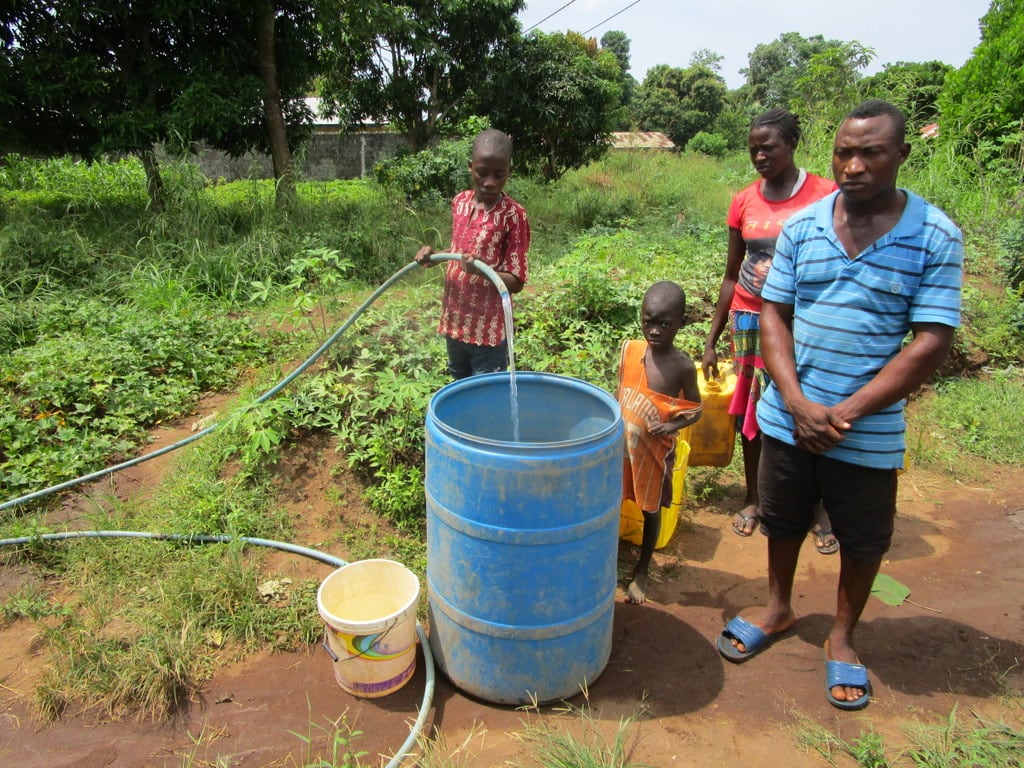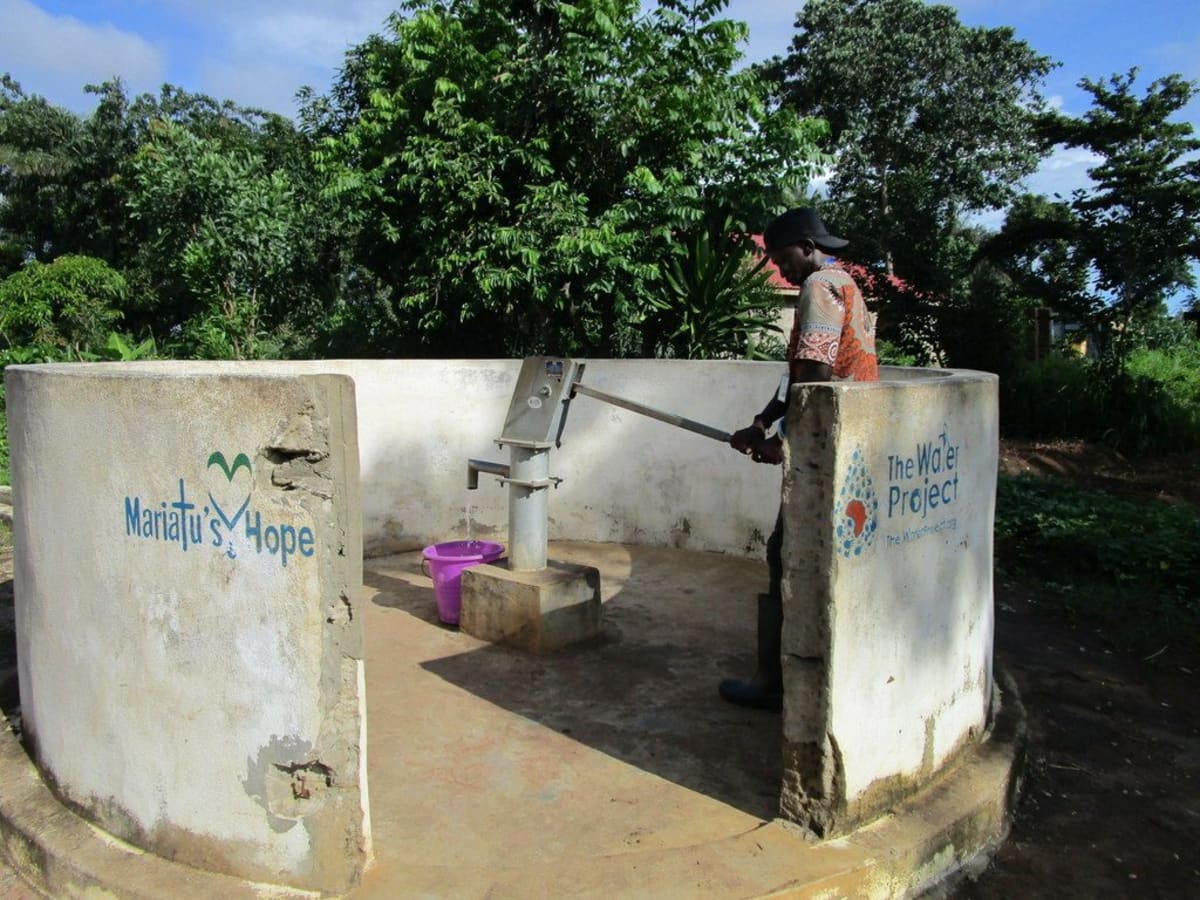This borehole will be on land donated by St. Mark's Church, located on Waysaya Road. Being one of the oldest churches in the area, it used to host a huge membership. Since then, several other churches have opened and drawn away its members. Now, there are only 20 to 30 people meeting together on the weekends. Thus, this water will primarily serve the dozens of families living within walking distance: Approximately 338 people from 54 different households.
Benke Community is diverse, with people coming from many different walks of life. Some work at the airport, some are gardeners, business people, and traders. This community is special because though it is diverse, it is quiet and peaceful, as people are tolerant of each others' differences.
Water
The primary water sources in this area are an open swamp, a medium-sized plastic tank for rainwater, and SALWACO (Sierra Leone Water Co.) tankers. Of course the water from the swamp is free, as well as the water from the community-owned rainwater catchment tank. But when the water in that tank runs out, people either resort to the free dirty water at the swamp or expensive water from SALWACO. It is 5,000 shillings for two five-gallon jerrycans filled by SALWACO.
People do anything they can to avoid water straight from the swamp or expensive water from SALWACO (though many can't afford 5,000 shillings in the first place). During the rainy season, they'll put out all of their plastic buckets to catch water.
The water from the swamp is particularly dangerous for consumption. Animals come to sate their thirst, and we observed a burial site nearby. After drinking this water, people suffer from diarrhea. Right now in light of a recent cholera outbreak in Sierra Leone, people are particularly fearful of catching cholera from the rainwater they're collecting.
Sanitation
All households in this area have at least a basic pit latrine. Their quality depends on the economic status of the household; some are built with mud and have thatched roofs, while others have a modern flush!
There are no hand-washing stations for people to use after the latrine, though. A handful of families are missing helpful tools like dish racks and clotheslines to safely dry their belongings off the ground. Those who are missing hygiene and sanitation facilities say that they believe them to be too expensive to maintain.
Vicar Johnny Robert said he cannot say whether or not his community is healthy, but said that "on several occasions when I visit the hospital, I saw people whom am familiar with receiving treatment. As time went on, we hear news about deaths due to malaria, cholera, dysentery, etc. In relation to Ebola, many people died because of ignorance. The washing stations that were distributed are no more seen in the street corners."
Here’s what we plan to do about it:
Training
There will be hygiene and sanitation training sessions offered for three days in a row.
The hygiene and sanitation trainer decided it would be best to teach community members how to build a tippy tap (a hand-washing station built with a jerrycan, string, and sticks). They will use these tippy taps for hand-washing demonstrations, and will also teach about other tools like dish racks and the importance of properly penning in animals. Pictures will be used to teach the community how to discern between healthy and unhealthy hygiene and sanitation practices.
These trainings will also strengthen the water user committee that manages and maintains this well. They enforce proper behavior and report to us whenever they need our help solving a serious problem, like a pump breakdown.
New Well
Everyone living in Benke is in agreement that the well should be at the church, since it is a central location. The community has also voted on 13 household representatives to make a water and sanitation committee that will be in charge of well management and maintenance.
Our team will drive over the LS200 mud rotary drill rig and set up camp for a couple of nights. Once the well is drilled to a sufficient water column, it will be cased, developed, and then tested. If these tests are positive, our mechanics will install a new India Mark II pump.
This community has been drinking dirty swamp water and suffering the consequences. By drilling this borehole, Benke Community will be provided with plenty of safe drinking water.
This project is a part of our shared program with Mariatu’s Hope. Our team is pleased to provide the reports for this project (formatted and edited for readability) thanks to the hard work of our friends in Sierra Leone.

 Borehole Well and Hand Pump
Borehole Well and Hand Pump
 Rehabilitation Project
Rehabilitation Project































